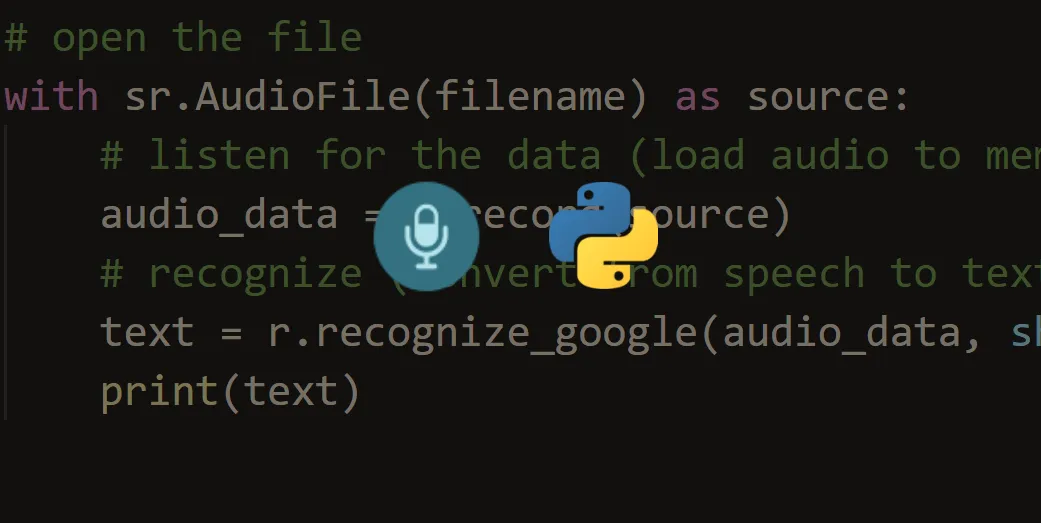
Transcribing audio using Python could be helpful in many different way - if you wanted to create a text version of a podcast for people who are hard of hearing. So, is it even possible to transcribe audio using Python? In this article, we'll answer that question --- and show you how to do it!
What is Python in a Nutshell?
Python is a high-level, interpreted, general-purpose programming language, created in 1989, by Guido van Rossum, with a design philosophy entitled, "There's only one way to do it, and that's why it works." In the Python language, that means explicit is better than implicit.
Any given construct in Python has only one purpose and serves only one function. This makes your code more reliable because there is no guesswork involved in trying to figure out what a piece of code is supposed to do.
And when something goes wrong, it is easier to debug because you only have to look in one place for the answer. As a result, Python code is typically shorter and easier to read than code written in other languages.
That doesn't mean that Python is a better language than languages like Java or C++. It just means that it is different. Different is good. Different gives you choices. And choice is always good.
What is Audio Transcription?
Audio transcription is the process of converting audio into text. This can be helpful for people who are hard of hearing or who want to follow along with a lecture or podcast. Most audio transcription services are based on AI transcription, which is getting more and more popular.
There are many different ways to transcribe audio, but Python can help make the process easier:
Use an Existing Library
There are a few different libraries that can be used for audio transcription, such as CMU Sphinx and Google Cloud Speech. In these cases, you will need to first convert your audio into a format that the library can understand.
Once you have done that, you can then use the library to transcribe the audio. The accuracy of the transcription will depend on the quality of the audio and the library you are using.
Write Your Own Code
You can also write your own code to transcribe audio. This may be more difficult, but it can be more rewarding. You can use the SpeechRecognition library to help with this.
The SpeechRecognition library will give you access to a number of different speech recognition algorithms. You can then use these algorithms to transcribe your audio. The accuracy of the transcription will again depend on the quality of the audio and the algorithms you are using.
You can also use the SciPy and NumPy libraries to help with this. SciPy and NumPy will allow you to work with audio data in a more natural way.
The Benefits of Audio Transcription
There are a number of benefits to audio transcription, and one of the most important and obvious is the improvement of web accessibility which is essential for compliance with the Americans with Disabilities Act (ADA).
10 benefits that audio transcription provides:
- It can help people who are hard of hearing follow along with a lecture or podcast.
- It can also be used to create text versions of podcasts or lectures for people who are deaf or have low vision.
- It can help you learn a new language.
- It can be used to create subtitles for videos.
- It can help you improve your writing skills.
- It can help you improve your communication skills.
- It can help you better understand the spoken word.
- It can help you become a better listener.
- It can help you improve your memory.
- It can help you better understand the world around you.
These benefits are just a few of the many that audio transcription can provide. While many of these benefits are geared towards students and professionals, anyone can benefit from audio transcription.
Conclusion
Python is a great language for audio transcription. It is easy to use and there are many libraries that can be used to transcribe audio. The accuracy of the transcription will depend on the quality of the audio and the library you are using.
If you are looking for a more challenging project, you can also write your own code to transcribe audio. This may be more difficult, but it can be more rewarding. You can use the SpeechRecognition library to help with this. No matter what your reason is for wanting to transcribe audio, Python can help you do it.
